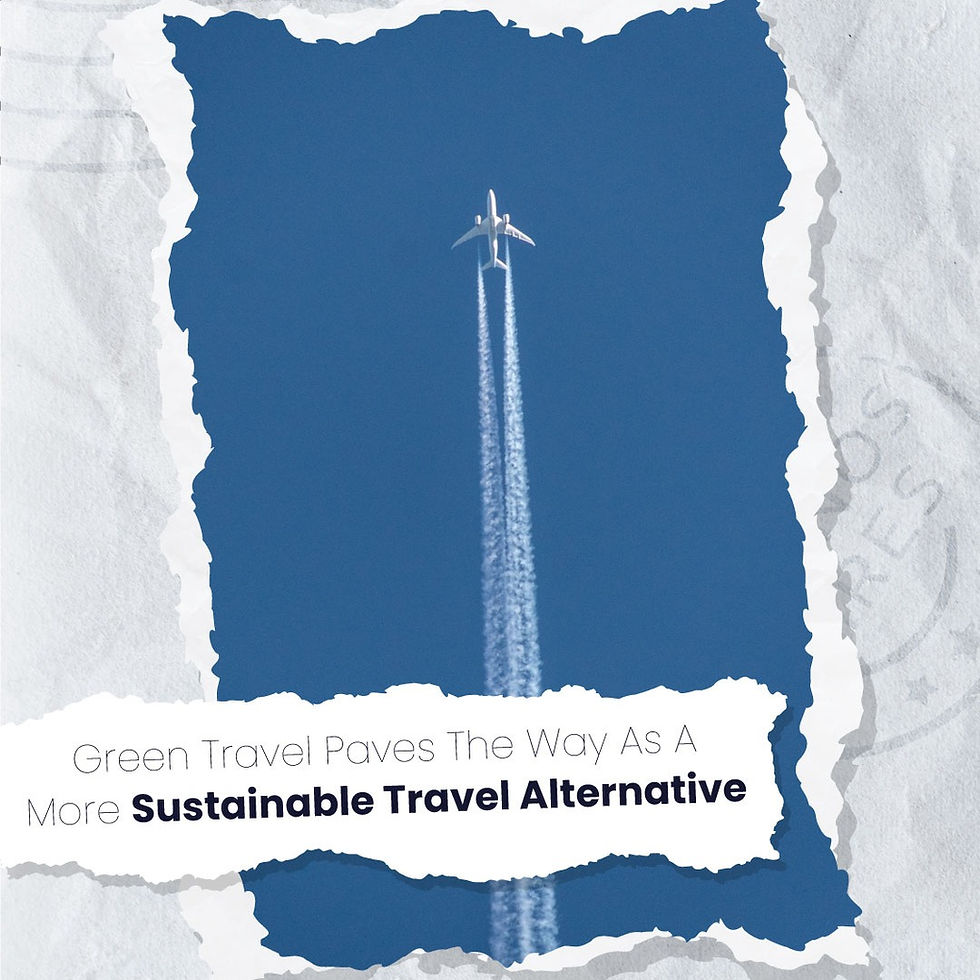How Climate Change Became The Climate Crisis
- Floating Lime

- Nov 13, 2021
- 4 min read

It is no surprise that climate change has become a consistent buzzword in mainstream media over the past decades. Since the 1980s, scientists had continuously warned governments and communities worldwide of the erratic shifts in climate as well as rise in global temperatures due to human influences and activities, which we have now come to understand as climate change and global warming.
The primary driver of climate change was recognized as the emission of greenhouse gases, of which more than 90% are methane and carbon dioxide (CO2). These emissions are known as the result of burning fossil fuels such as coal, oil, and natural gases for energy consumption across various industries such as mining and manufacturing. In addition to the greenhouse effect, these industries are also complicit in activities that cause radical changes to the Earth's environment, including dumping, deforestation, and other industrial processes. Consequently, the planet's weather patterns experience drastic changes as global warming accelerates, leading to melting ice caps, increased ocean temperatures and rising sea levels, which threatens the Earth's natural ecosystems.
Corresponding with the potential extinction of several species and their natural habitats that are essential for the planet's ecosystem, mankind is to face dramatic alterations in their livelihoods as well. The increasing shifts in climate are likely to grow more intense and lead to new extremes in weather conditions worldwide. Heatwaves and wildfires are expected to grow more common across the environmental landscape as deserts continue to expand at the expense of wildlife and woodlands. The risk of climate change presents devastating consequences for humanity including infectious diseases, food insecurity, water scarcity, economic displacement as well as the added environmental impacts due to severe meteorological conditions.
Though the climate has been steadily growing warmer over the past century and we are constantly reminded of the aftermath of global warming, the general attitude towards climate change has been somewhat dismissive. This is mostly due to the lack of immediacy in climate change and global warming as perceived by the public; in retrospect, the slow boil of the planet that leads to the melting of ice caps and glaciers might seem like it could take some time, at least a couple of decades. Additionally, compared to eventual concerns, immediate concerns are identified as a greater priority as thus, climate action has often had to take a backseat in comparison to other socio-economic issues.
Nevertheless, the consistent growth in fuel emissions due to mass consumerism and wastage, has already resulted in devastating consequences for the planet's environment and atmosphere and the effects of climate change are already observable; glaciers are shrinking, ice on bodies of water are breaking earlier, plants are prematurely flowering and wildlife are permanently migrating from their original habitats. By the late 2010s, the term climate change had slowly become replaced with climate crisis and climate emergency, as to invoke a sense of urgency among the public. Major media outlets and networks were urged to begin addressing this phenomenon as an international climate emergency and highlight the warnings of scientists to act quickly and boldly to prevent a global catastrophe.
Moreover, to counter the changing climate, the United Nations established the Sustainable Development Goals in 2015, a set of objectives that seek to resolve global challenges including environmental concerns. Per this agreement, 193 governments as well as several private sector organizations had agreed to take the necessary actions to combat climate change and effectively minimize its impacts by 2030. While many organizations and state-owned bodies partook in varying measures to reduce the effects of climate change, it is evident that what has been done is still not enough and constitutes the bare minimum.
In the most recent report by the Intergovernmental Panel on Climate Change (IPCC), the climate crisis is being described as a "code red for humanity" as global warming has reached dangerously close to spiralling beyond mankind's level of control. Though it is still possible for governments to continue their efforts in curtailing the climate crisis, scientists have surmised that impacts such as deadly heat waves, intense hurricanes, irregular floods, and droughts are likely to continue due to the pre-existing damage from emissions over the past years. Per the report's findings, global surface temperature has increased faster since 1970 than in any other 50-year period in the last 2000 years. Hot extremes on a meteorological scale have grown more frequent and more severe across the globe and some recent extremes observed in the past decade would have been extremely unlikely to occur without human influence on the climate system. In fact, human activities have contributed to many observed changes in weather and climate extremes as the climate crisis continues to affect every inhabited region across the planet.
The current international pledges to cut emissions are still nowhere near effectively diminishing the level of greenhouse gases accumulated in the planet's atmosphere. At present, we are facing global temperature levels of 1.1-degree Celsius and it has proven to have been enough to cause calamitic changes in international weather patterns. It was reported that unless immediate, large-scale action is taken to reduce emissions, the average global temperature is likely to cross the 1.5-degree Celsius warming threshold in the following decade. Though it's difficult to estimate the exact moment the effects of the climate crisis will push us off the edge, it is certain that if there isn't any action being taken today, we might not be able to face tomorrow.








Comments